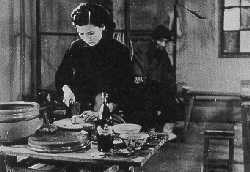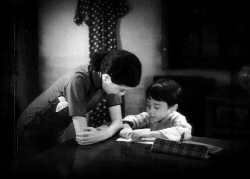
The second generation of Chinese directors was mainly active during the 1930s and 1940s, though some were still making movies as late as 1980. Those with the biggest achievements in this generation included Cai Chusheng, Zheng Junli, Fei Mu, Wu Yonggang, Sang Hu and Tang Xiaodan.
While these directors accomplished the transition of Chinese films from silent to talking pictures, there was an achievement even greater in significance: Chinese movies was liberated from solely entertainment purposes, and began to reflect society in a more profound way. The most prominent artistic feature of these directors' movies is their realism.
Meanwhile, the directors began their efforts to integrate reality with filming, thus gradually learning the basic rules of the film art. It is fair to say that Chinese movie began to demonstrate its independent value starting only from this generation of directors.
The Left-wing Film Movement, also known as the New Film Movement, permeated the whole period when the second generation of directors was active. The representative works of the movement are Goddessby Wu Yonggang,Spring SilkwormbyXia Yan,Urban Nightby Fei Mu,Broad Roadby Sun Yu,Melody of the Loving Motherby Zhu Shilin,Womenby Shi Dongshan,Song of the Fishermenby Cai Chusheng andDisaster of the Peach and Blossomby Shen Xiling and Yuan Muzhi.
Besides the progressive movies, the cartoon works by the Wan Brothers like Dog Detective and Counteract, whose content criticized the social abuses of the time, influenced the Japanese cartoons in the 1930s with its form.
